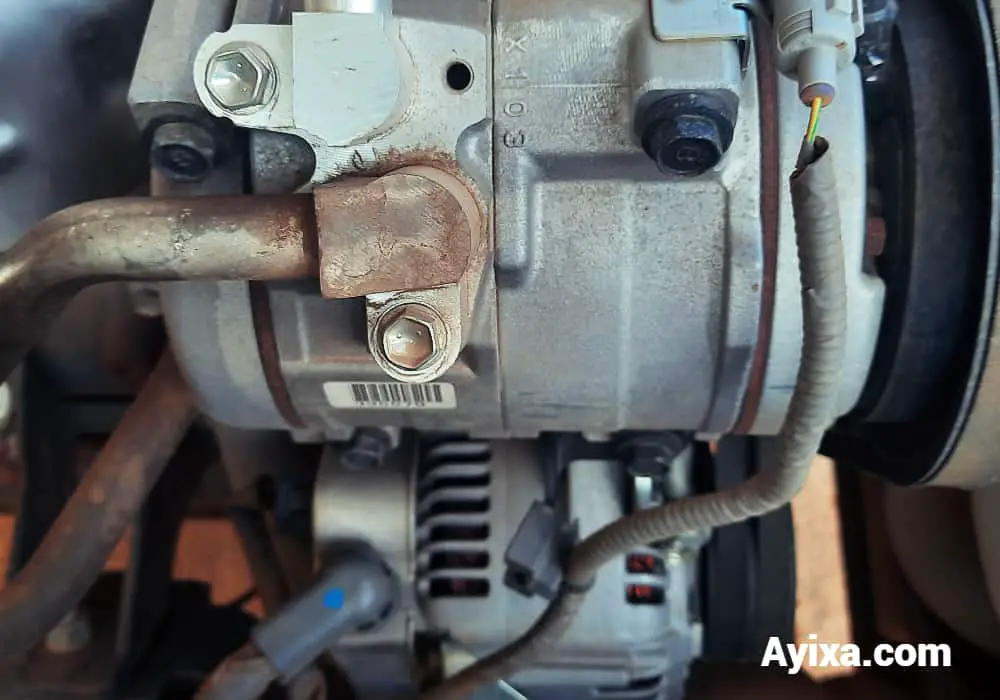Your car alternator’s ability to charge a battery fully and efficiently may be affected by a failure in the alternator, loose or damaged wire connections, or even whether the battery is healthy or not.
What is probably less heard of is a loose mounting bolt which too can affect how well it charges.
This post lists the symptoms that may point to a loosely fixed alternator bolt(s) so that you can hopefully catch it in time, and the dangers you expose yourself to if not fixed properly.
When the Alternator Bolts are Loose
You may be fortunate to hear some unusual sounds, for example rattling noises around the alternator as you drive.
Other times, the battery may not charge fully and you may experience the slow cranking of the engine which unfortunately is not limited to just a loosely mounted alternator.
Make sure to visually inspect the alternator bolts, especially after a replacement to confirm that they are not sticking out and are securely fixed.
You may also be interested in What can drain a car battery when the ignition if off
What happens when an Alternator Bolt is Loose
A loosely fitted or missing alternator bolt may not have any noticeable effect on how well the battery charges. In some cases, however,
#1. The battery may not charge fully if one or more alternator bolts are loose. The loose alternator bolt can affect the belt tension and the speed at which the alternator runs which in turn can negatively impact how well the battery charges.
#2. The car may stall while driving (should the battery charge run out) because of a lack of power for the car’s electrical systems brought on by a loosely mounted alternator.
Should you Risk and Drive?
If the car alternator bolt is loose, attempting to drive exposes you to the risk of the car engine stalling as you drive.
Other dangers include low battery life from the battery not being able to charge fully and potential costly mechanical works should the alternator bolts break or pulleys become misaligned because of the loosely fitted alternator.
Tightening the Bolts
Alternator manufacturers advise on how to tighten the bolts right – applying the right torque using a suitably sized wrench so always consult the alternator manual.
Use good quality bolts too to minimize the risk of broken bolts.
Related Questions
Loosening Tight or Stuck Alternator Bolts
There are several options available to you should the alternator bolts be too tight to loosen or in case there is a stuck piece.
Stuck Bolt
Use a penetrating oil like PB blaster to loosen the rust or corrosion that’s holding the bolt in place.
You may have to leave it for several hours, applying a few squirts before the bolt is loosened.
Broken Bolt
#1. For a broken bolt, drill into the stuck bolt (breaking up the stuck section into pieces) which can then be removed easily.
#2. Another option is to use an extractor kit. Drill a hole into the stuck piece whose diameter is the size of the extractor.
Use a hammer to tap the extractor into the whole. Then turn the extractor (that is now locked into the stuck piece) to remove both the extractor and the stuck piece.
Note: You may need to jack the engine to get better access to the areas being worked on
#3. If you’re handy, you can weld a stud to the broken piece. Next use a suitably sized wrench or adjustable spanner to firmly grip and rotate the stud to remove both the stud and the broken piece now joined together.
Last but not least, you can also take the car to an auto parts shop that has the right tools and personnel to have it fixed for you.
Closing Thoughts
A loose alternator bolt can sometimes affect how well the car battery charges. The car engine may stall should the alternator not be able to meet the car’s electric power needs and the battery charge runs out while driving.
These are some of the signs you may notice should the bolt(s) loosen.
Don’t take chances if the alternator bolt is loose. Get it fixed right away to avoid getting stuck or costly repairs.
Recommended Posts
